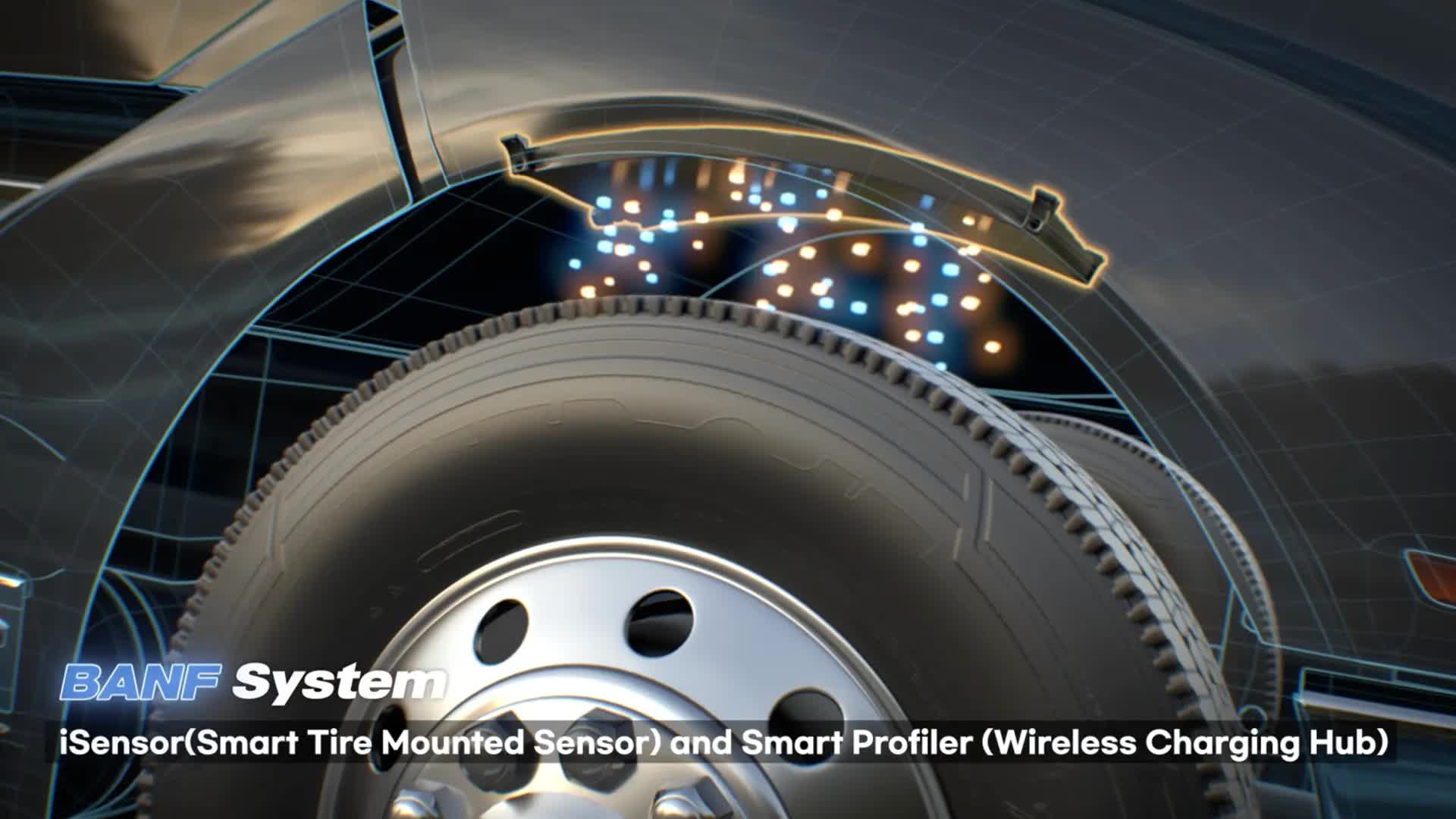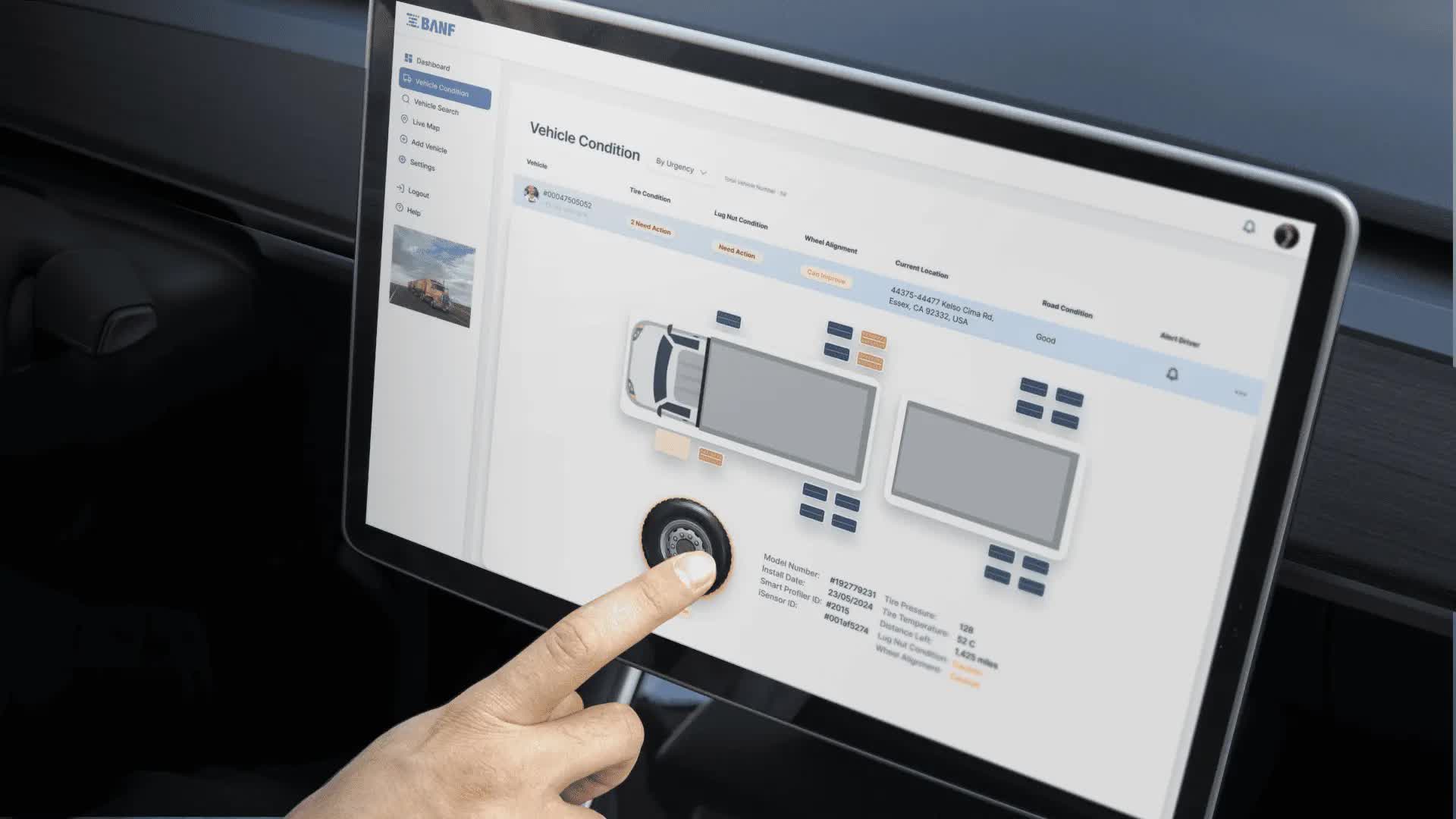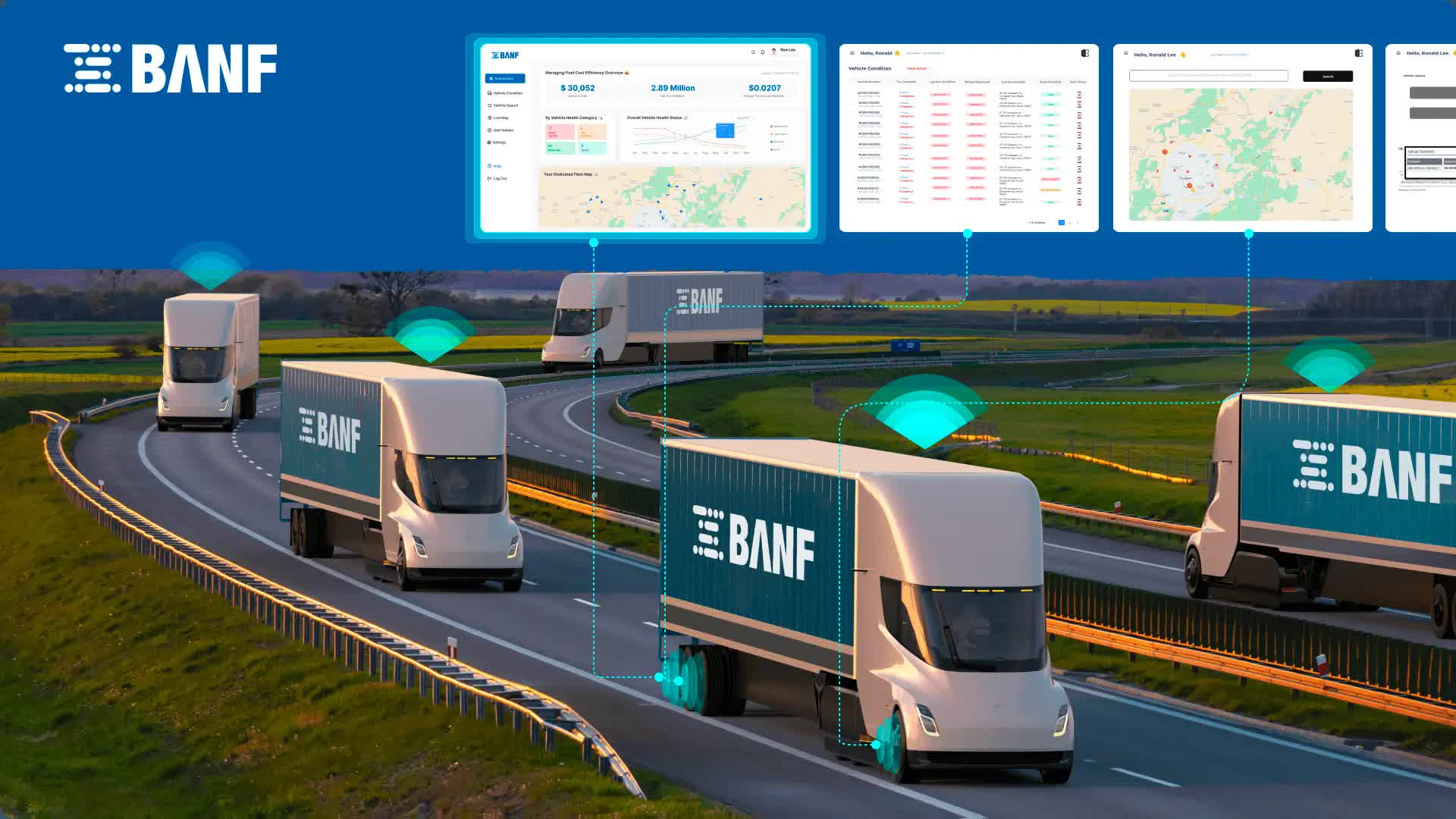Why it matters: Tires are probably the last thing that comes to mind when thinking about cutting-edge technology in trucks, but perhaps they should be. A startup called BANF has demonstrated how monitoring tire health could play a crucial role in maximizing the safety and efficiency of autonomous big rigs.
BANF, short for 'Begin A New Feature,' has developed specialized hardware and AI software designed to track detailed data on truck tires. Using sensors embedded within the tires, the company monitors pressure, temperature, tread wear, wheel alignment, and even lug nut tightness – essentially covering all aspects of tire health.
The core component is a 'triaxis' sensor mounted on the tire's inner liner. This multi-sensor unit captures motion data across three axes: acceleration/braking, side-to-side swerving, and up-down vibrations from bumps. All collected data is then transmitted via Bluetooth to a 'smart profiler' mounted nearby. The profiler functions as a transmitter, receiver, and wireless charger, drawing power from the truck's battery.

BANF's machine learning models analyze the raw data to offer insights on cargo load, tire lifespan, fuel efficiency, and road surface conditions like potholes. Ron Lee, head of business development at BANF, claims their analytics are up to 90 percent accurate. He believes the data could greatly benefit fleet managers, automakers, and transportation departments seeking to reduce costs and enhance safety.
There's a monthly fee of $50 per vehicle, but Lee estimates it could save big rig operators up to $4,500 annually by lowering tire maintenance expenses and boosting fuel efficiency. With truck accidents on the rise – and over 30 percent involving tire-related issues, according to some reports – the technology may also help curb such incidents.

BANF is already collaborating with major industry players such as Volvo, Hyundai, and DHL on implementation projects. Currently, their sensors are installed on 123 commercial trucks worldwide, along with a few passenger vehicles. The company ultimately aims to commercialize its technology through profit-sharing agreements with major tire manufacturers by the end of 2026.
Lee notes that self-driving trucks are engineered to operate continuously, placing extra strain on tires. Electric semis, with their heavy battery loads, will add even more stress. As the popularity of autonomous trucking accelerates in the coming years – fueled by substantial investments from companies like Daimler, Volvo, and others – demand for BANF's technology could surge.
